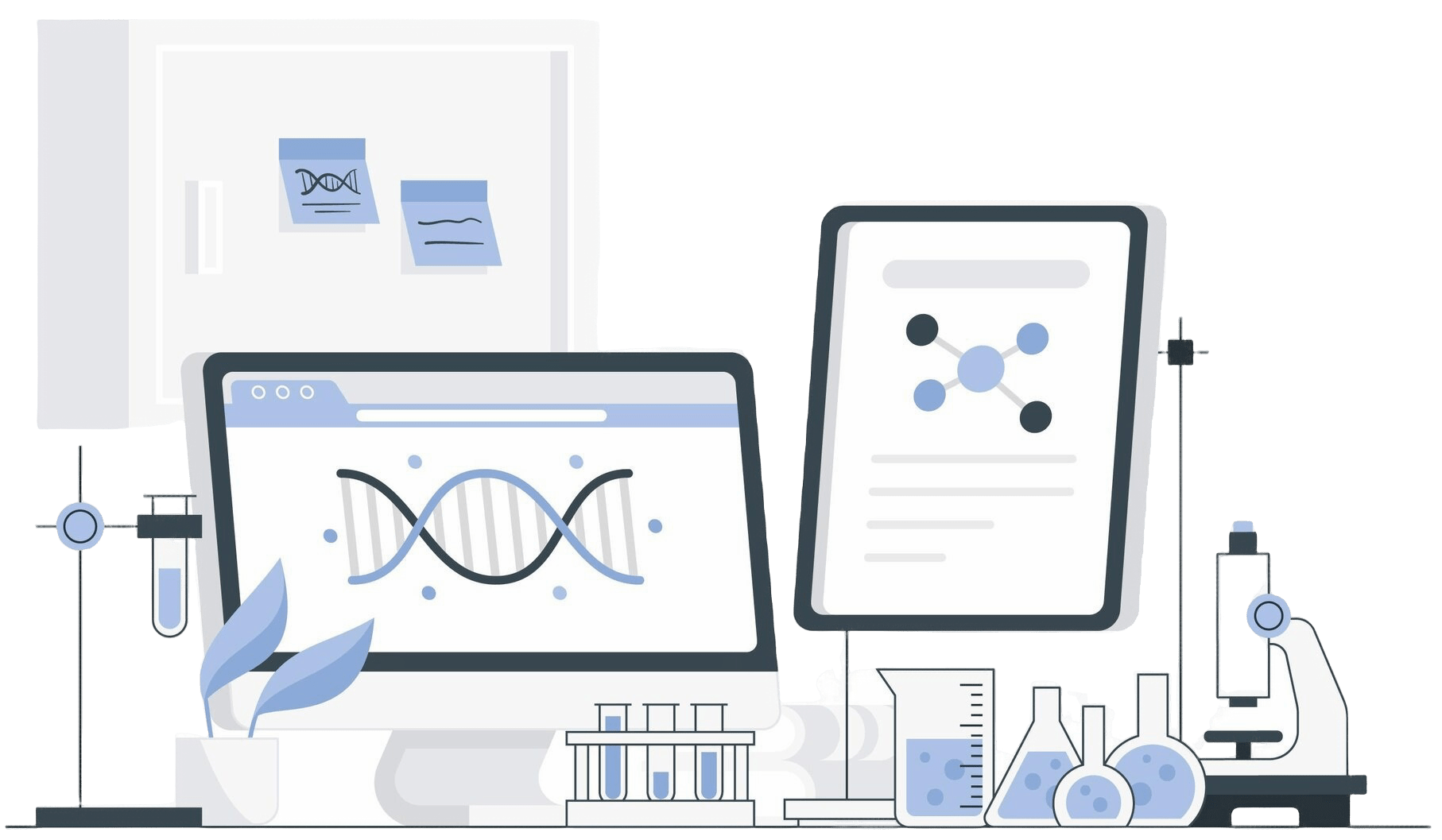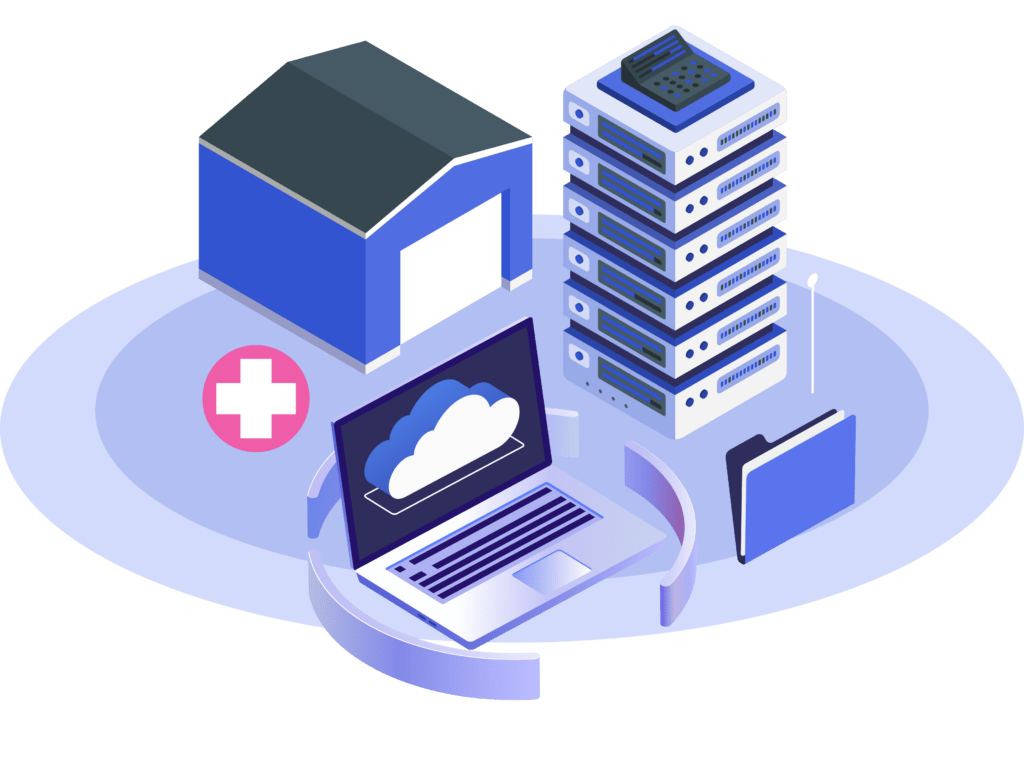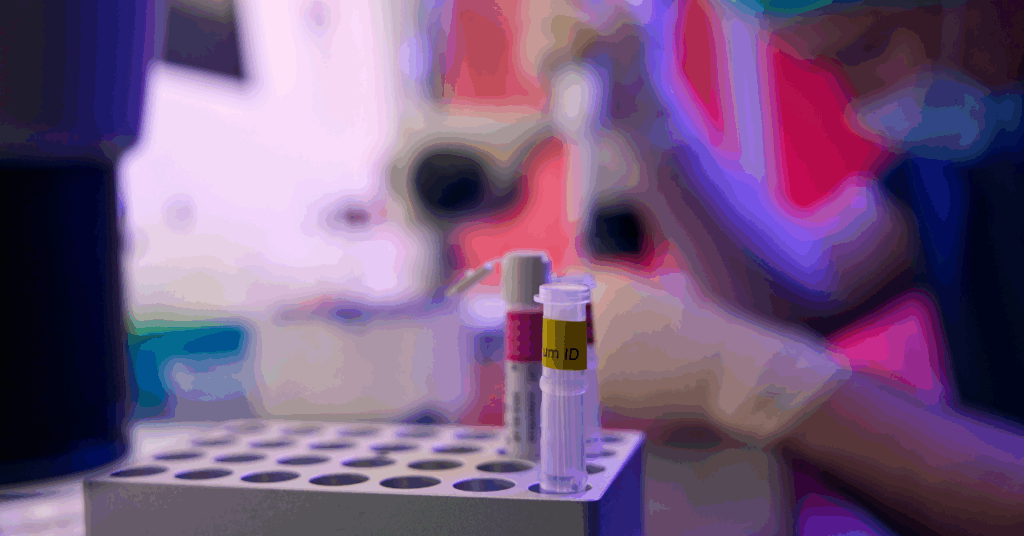
LIS Integration Services for Labs
LIS integration services for labs – we connect your Laboratory Information System (LIS) to EHR/EMR and other systems so orders, results, and patient data flow reliably end to end.
If you’re planning a new interface, fixing unstable results delivery, or upgrading an LIS, we can scope the workflow and provide an integration estimate based on your environment and requirements.
Healthcare Integrations designs, builds, tests, and supports LIS-to-EHR and LIS-to-LIS interfaces for orders → results, demographics, billing/RCM workflows, and public health reporting. We also connect laboratory instruments to your LIS to reduce manual steps and improve turnaround time.
What you get with our LIS integration services
You get a production-ready integration that moves data safely between systems, with clear mappings, validation, and error handling – plus documentation your team can maintain over time.
- Interface planning and workflow discovery
- Field mappings and transformations (orders, results, demographics, charges)
- Validation, acknowledgements, and exception handling to prevent silent failures
- End-to-end testing (including edge cases) before go-live
- Go-live support and stabilization
- Documentation and handoff for long-term maintainability
- Optional ongoing support as systems and workflows change
When It’s Time to Start a LIS Integration Project
Reach out to start LIS integration planning and get a clear next step – a short discovery conversation to confirm systems, workflows, connectivity, and what “done” looks like.
Common triggers:
- You’re integrating a new EHR/EMR and need orders → results working end to end
- You’re migrating or upgrading an LIS and want to preserve workflows without downtime
- Results are delayed, incomplete, or require manual fixes
- Interfaces break during system updates and you need stronger monitoring and governance
- You need standardized outbound reporting (providers, payers, public health)
How the integration process works
- Assess systems, current data flows, volume, and workflow goals
- Design standards and connectivity (HL7 v2, FHIR R4, ASTM, APIs, SFTP/VPN as needed)
- Build + validate mappings, edge cases, and error handling in test
- Go-live with monitoring, error management, and audit-ready logging
- Improve interfaces as platforms and workflows evolve
Ready to discuss your workflow and systems? Share your LIS/EHR details and we’ll outline the safest path to implementation.
Key LIS Integration Services
Contract LIS integration development
Need help with a specific interface? Contract with us to build a LIS integration for a defined workflow, site, or client requirement.
Managed LIS integration services
Need long-term LIS integration services across many clients or facilities? We can operate as an extension of your team to build, maintain, and improve interfaces at scale.
LIS integration hosting
We can host integrations for a monthly fee with backups, security controls, and monitoring options appropriate for healthcare environments.
LIS integration monitoring
For mission-critical interfaces, we offer monitoring and alerting so issues are detected early and escalated to the right team quickly.
If you need centralized visibility into interface traffic and errors, see
Interface Monitor.
LIS integration strategy
Not sure where to start? We help define an integration roadmap aligned with workflows, clients, and budget.
LIS integration consulting
Have internal resources but need guidance? Our LIS integration consulting supports architecture decisions, mapping strategy, validation plans, and vendor coordination.
LIS Integrations We Build for Labs
LIS instrument integrations for labs
Connect analyzers and instruments to your LIS to reduce manual entry and improve data quality.
LIS to EHR/EMR integrations
Enable orders → results workflows between your LIS and EHR/EMR using HL7 interfaces and APIs.
Public health reporting integrations from LIS
Support required reporting workflows with consistent data mapping and reliable outbound delivery.
RCM and billing integrations from LIS
Improve downstream billing and revenue workflows by keeping patient and order data consistent across systems.
Common LIS Interface Workflows for Labs
Orders ↔ results exchange (LIS ↔ EHR/EMR)
Keep orders and results moving reliably across systems so clinicians receive the right data without manual reconciliation.
Patient demographics and provider updates (when required)
Reduce mismatches and rework by keeping patient and ordering-provider details aligned across connected systems.
Instrument result posting to LIS
Bring instrument output into the LIS to reduce manual steps and improve turnaround time.
Billing/RCM downstream exchange
Support revenue workflows by keeping key patient and order data consistent as it flows to billing/RCM platforms.
Reporting pipelines (including public health reporting when applicable)
Deliver consistent outbound reporting with stable mappings and predictable delivery behavior.
What LIS Integration Services Unlock for Your Lab
LIS integration services help labs move from fragile point-to-point connections to reliable, end-to-end data flow. Healthcare Integrations connects your LIS to the systems that matter so orders, results, and patient context stay consistent from specimen intake through final reporting.
What this improves in day-to-day operations:
- Fewer manual steps and fewer exceptions that require staff intervention
- More consistent identifiers and clinical context across connected systems
- Clearer traceability when something fails (so issues can be fixed quickly)
- More predictable turnaround as workflows scale
Instrument Integrations for Laboratories
When instrument connectivity is part of the workflow, we integrate instruments with LIS platforms using HL7 or ASTM where supported. When devices only support results-only, unidirectional feeds, we design for clean, predictable delivery so teams spend less time on manual entry and rework.
Security and Compliance
LIS integrations handle PHI. We apply least-privilege access, encryption in transit when required, and change logging to support audit readiness and HIPAA-aligned practices.
Related services: HL7 Integration, FHIR Integration, Healthcare API Development.
LIS Integration Service FAQs
What is the typical process for integrating our LIS with other healthcare systems?
Most LIS integrations follow a 5-step process from discovery to ongoing optimization.
- Discovery – assess systems, current data flows, volumes, and workflow goals
- Scoping – define standards, connectivity, and success criteria
- Developing – build interfaces, transformations, and error handling in a test environment
- Validating – run end-to-end testing with edge cases and sign-off
- Monitoring – go-live monitoring, issue triage, and continuous improvements
Which systems can our LIS be integrated with?
We can integrate your LIS with other healthcare systems – most common: LIS ↔ EHR/EMR, instruments, billing/RCM, and reporting.
- Electronic Health Record (EHR/EMR) systems
- Laboratory instruments and analyzers
- Billing and revenue cycle management (RCM) systems
- Regulatory reporting systems for public health data
- Patient portals and physician order entry systems
How long does a typical LIS integration project take?
Most LIS integration projects take 4–6 weeks, depending on scope and environment readiness.
- Number of connected systems, instruments, and workflows
- Connectivity requirements (VPN/SFTP/APIs, etc.)
- Data mapping and transformation complexity
- Test environment readiness and validation cycles
- Go-live coordination and monitoring requirements
What data can be shared between our LIS and other healthcare systems?
LIS integrations typically exchange the core data needed to support orders → results and downstream lab workflows.
- Patient demographics
- Orders and order status updates
- Results and result status updates
- Specimen and accession details
- Provider and facility information
What standards do you use for LIS integration?
We select the best standard based on your workflow and system capabilities, most commonly HL7 v2 and FHIR R4.
- HL7 v2
- FHIR R4
- X12 EDI (for applicable integration use cases)
- APIs where standards are not available
- ASTM where appropriate (common for instruments)
What data formats do you support for LIS integrations?
We support multiple formats and choose what best fits your LIS and the connected system.
- HL7 v2
- FHIR R4
- JSON
- XML
- ASTM
Other formats we also work with include CSV, DICOM, embedded PDFs, and TXT when required.
Connectivity methods we commonly implement include:
- SFTP / FTPS
- VPN
- REST API
- SOAP API
- AWS S3
Other options can include SMTP and fax when required by the workflow.
How do you handle data mapping and transformation for LIS integrations?
We implement mapping and transformation inside the integration engine (interoperability layer), using HL7 Integration and FHIR Integration patterns where applicable.
- Define source-to-target mappings aligned to the workflow
- Apply transformations and normalization for consistent downstream data
- Route messages/events reliably across connected systems
- Validate edge cases and exceptions in test before go-live
- Keep mapping logic separated from the LIS for compatibility
Do you provide ongoing support after the LIS integration is completed?
How scalable are your LIS integration solutions?
Our LIS integration approach is designed to scale as your lab adds systems, instruments, sites, and workflows.
- Add new instruments and analyzers without rebuilding core flows
- Support multiple facilities, clients, or locations
- Extend to new workflows (orders → results, billing/RCM, reporting)
- Adapt when switching LIS platforms
- Keep integrations configurable to handle variation across sites
What challenges might arise when building LIS integrations, and how do you address them?
Common LIS integration challenges are predictable – we address them with structured validation and production-ready design.
- Differences between interface specs and real production behavior
- Limited communication or support from external vendors
- Variation in EHR implementations across sites
- Edge cases that only appear with real-world data
- Need for configurable mappings to handle client-specific requirements
What YOU get
-
Project Documentation
Interface specs, message mappings, test plan, and handoff notes so your team can maintain and extend LIS interfaces with confidence. -
Extra Business Value
Less manual entry, fewer duplicates, and faster turnaround – with interfaces designed to stay predictable in production. -
Intellectual Property
All integration code and deliverables we build for you are yours – full ownership and control of the interface logic and artifacts. -
Integration-Ready
Built around real lab workflows: orders ↔ results, demographics updates (when required), instrument result posting, billing/RCM exchange, and reporting flows.
-
Post-Launch Support
A defined stabilization period after go-live (per agreement) for fixes, tuning, and support as real production traffic hits. -
Complete Transparency
Milestone-based delivery with clear checkpoints – a well-defined LIS interface is often delivered in 4–6 weeks (scope dependent). -
Data Protection
PHI-aware delivery practices: least-privilege access, audit-ready change logging, and encryption in transit when required. -
White Label Services
If you deliver integrations to client sites, we can operate under your brand so your customers experience a seamless extension of your team.
Here are 4 reasons why you should choose us
-
ExperiencedOur team has successfully addressed hundreds of healthcare interoperability challenges.
-
Security FirstOur team adheres to industry-standard best practices in cybersecurity and HIPAA compliance.
-
Exceptional ServiceOur US-based team delivers fast, comprehensive interoperability services that enhance your offerings.
-
24/7/365 AvailabilityWe understand that healthcare is a round-the-clock responsibility, which is why we provide 24/7/365 support for your mission-critical integrations.







